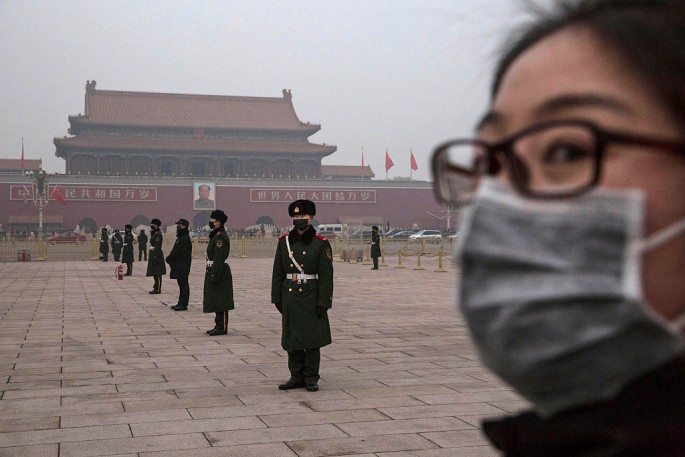A review by the Ministry of Environmental Protection of the two red alerts made by the Beijing municipal government in December, releases on Thursday, says the first alarm could have been made earlier. Under a red alert, public schools are shuttered, car use is limited and factory production is suspended.
Beijing issued two red alerts to cover Dec. 8-10 and Dec. 19-22 after the daily average concentration of PM2.5-particles less than 2.5 microns in diameter - considered as dangerous to health - registered a 75.9 percent increase compared to Nov. 15-Dec. 31, 2014.
But because of the late issuance of the red alert - the highest in China's four-level air pollution alert system - parents in the capital city complained that they have to leave their children alone at home, while they need to be at work. Many residents also did not notice the second red alert warning, says Zhang Yiqun, an employee of a media company based in Beijing. Zhang says he failed to receive any red alert warning for Dec. 19-22, reports Chinadaily.
Besides the late warning, Zhang also took the municipal government to task for claiming a reduction in smog level which he says he did not feel the difference. Zhang Yanchen, an employee of a Beijing-based research company, urged the municipal government to be stricter in overseeing industrial production and burning of coal.
In defense of the Beijing Environmental Protection Bureau, Wang Bin, head of the agency's Emergency Department, explains that thresholds for red alerts in the city were lowered in March which made it easier for the municipal government to issue the alerts compared to other Chinese cities and provinces.
To curb smog, the municipal government reduced coal consumption by 12 million metric tons in 2015 and switched more than 300,000 households in Dongcheng and Xicheng districts to electrical heating from coal-fired boilers.
On Wednesday, the Beijing Environmental Monitoring Center announced plans to reduce air pollution by more than 200 percent by 2030, reports ZME Science. China's cabinet, the State Council, also wants to lower PM2.5 readings to 60 by 2017 and further to 35 by 2030.



























